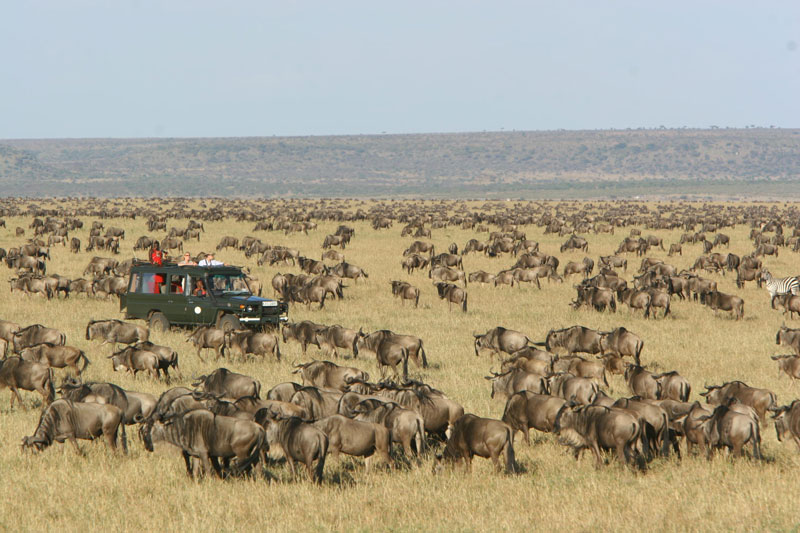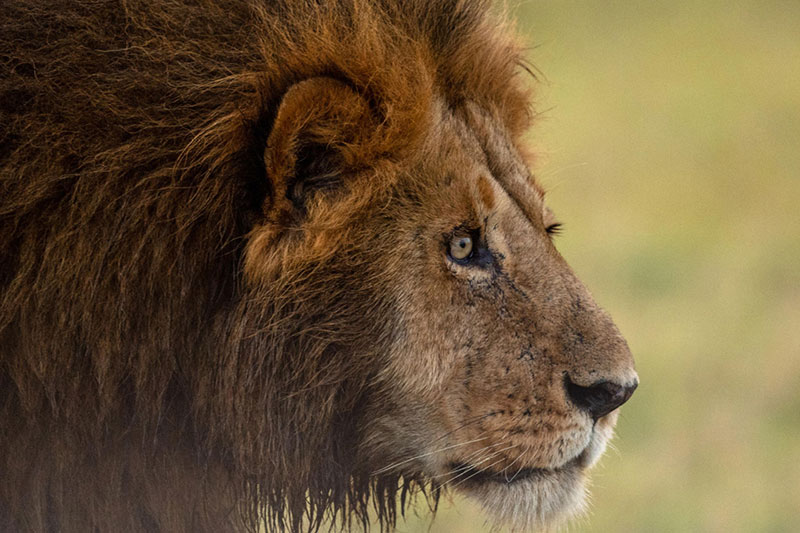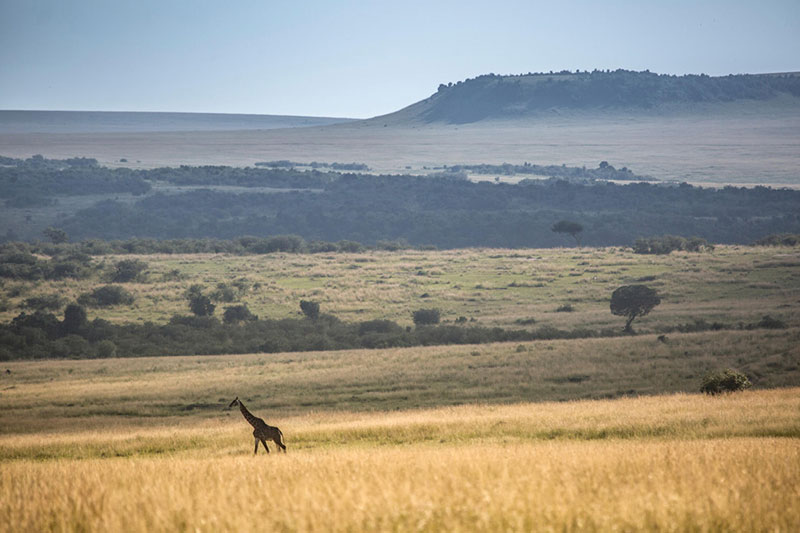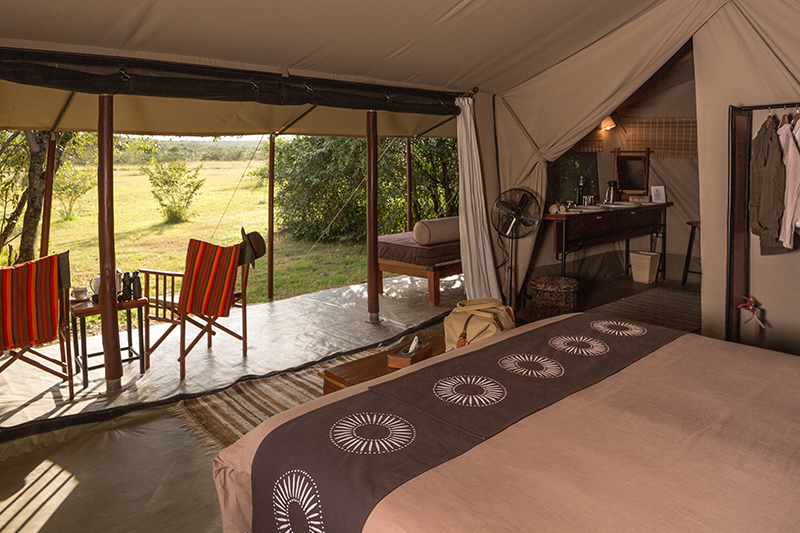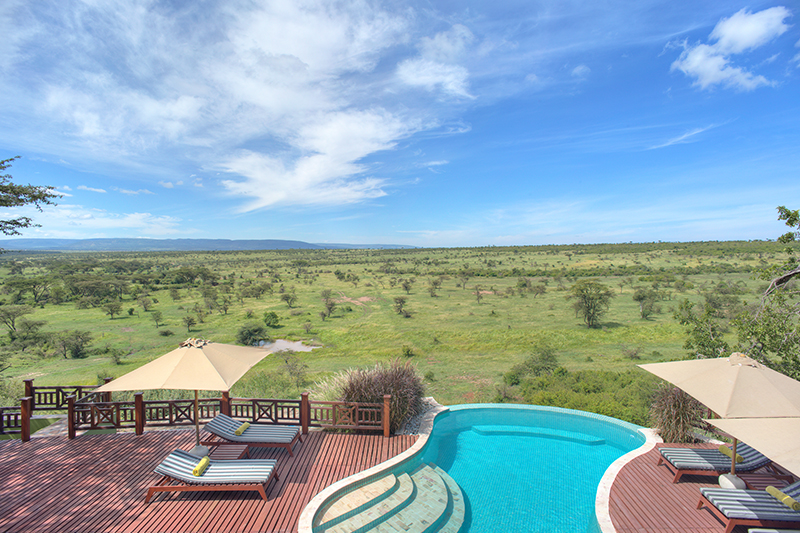Rekero Camp
Rekero Camp is a permanent tented camp located on the banks of the Talek River in the heart of the Masai Mara National Reserve.
Rekero Camp has an excellent location overlooking the Talek River not far from prime migration crossing points along the larger Mara River. The camp is very established, having been a well-known independent camp prior to joining the Asilia Africa portfolio, and offers a sophisticated bush experience. The tents are very comfortable, and food and service are good, while an authentic feel is retained with game often wandering through camp. However, the main reason to choose the camp is primarily based on location, being in the heart of the migration action. That being said, one drawback of its location in the National Reserve are the number of other tourist vehicles you will encounter, especially at major sightings including migration ‘crossings’, but the excellent Rekero guides are adept at managing this as far as possible.
Rooms
The camp accommodates up to 25 guests in nine classic walk-in tents. Each tent has a lounge area at the front and is comfortably furnished in a light a contemporary style. Plumbed en suite facilities are to the rear of the tent and include double vanity, flush toilet and indoor shower. Two of the tents (closest to the central areas and set back slightly from the river) are ‘family tents’ and have a master en suite bedroom at the front with river views, and a second en suite twin (can be made into a triple) bedroom at the rear of the tent, connected by a lounge area in the middle.
Central Areas
The spacious central areas include a dining room and lounge area leading on to an expansive deck with wonderful views down the Talek River. Behind the lounge is a library (which can also be used as a private dining area).
Facilities
Wi-Fi – Yes
Power for Charging – Yes
Swimming Pool – No
Habitat & Wildlife
The Masai Mara, perhaps the world’s most famous wildlife area, lies at an elevation of around 5,500 feet and is one of the few areas left in Africa where animals can be seen in the large numbers that existed a hundred years ago. The predominantly open grassland plains are dotted with trees and thickets, and incised with forested drainage lines and a couple of rivers which flow, or hold water, throughout the year (Mara River and Talek). The drier parts of the region have a few thickets of acacia woodland and whistling thorn.
The diverse habitat enables many different species to co-exist: elephant, black rhino, Masai giraffe, Cape buffalo, eland, Burchell’s zebra, topi, Coke’s hartebeest, wildebeest, waterbuck, impala, Thomson’s gazelle, reedbuck, lion, leopard, cheetah, hyaena, jackal, genet, civet and serval, hippo, crocodile, baboon, vervet monkey, warthog, various mongoose species, and many more (we would be particularly interested to hear if you see roan antelope or oribi). During July to October, the Mara is home to the famous wildebeest migration which is accompanied by large numbers of zebra. Over 500 bird species have been recorded in the area, including Denham’s bustard, Temminck’s courser, yellow-throated sandgrouse, Usambiro barbet, saddle-billed stork and Gabon nightjar. Some 50 of the bird species are raptors; the large martial eagle even preys on small antelope.
Activities
Being situated in the Reserve itself, game-viewing is limited to day-time game drives. Helicopter scenic flights and hot air ballooning are also possible (at an extra cost).
Seasons
Rekero Camp is open from June to April, with excellent wildlife viewing throughout, though migration season is usually mid-July to mid-October and April is the start of the long rainy season.
Rekero Camp accepts children from five years of age and the family units are perfect for those travelling with children who all want to be in the same tent. With exciting game viewing and great value, Rekero offers a good family option for staying in the Masai Mara, however the camp is very ‘close to nature’ with animals wandering through camp, so it is better suited to confident travellers who want adventurous style accommodation.
Staying at any of Asilia’s properties, owners of Rekero Camp, sees guests automatically contributing to community and conservation projects through their guest conservation charge. By staying in Asilia properties, guests are also supporting their in-house training schemes and responsible tourism efforts.
Asilia’s home-grown projects include Twende Porini, meaning ‘let’s go to the bush’. The programme hosts children from local communities in an Asilia camp for five days, offering an immersive introduction to the tourism industry and wildlife conservation. Whilst at the camp the children are mentored by Asilia guides and staff as well as local school teachers and engage in a range of activities from lectures to game drives in order to assist their understanding for the need for conservation in the wild areas close to their communities.
Asilia has also partnered with the Wildlife Tourism College of Maasai Mara which aims to equip both local and international students with vital knowledge that will help them solve the issues facing the Mara-Serengeti ecosystem, ranging from climate change, unemployment, modern development and pressure on land and wildlife. With the help of the guest donations and conservation fees, Asilia has offered full sponsorship to three out of the 40 inaugural students joining the college in 2023.
Projects close to, and supported by, Rekero Camp include the Maa Trust, which has established youth empowerment programmes, vocational training, beekeeping, honey production, and an extremely successful beadwork project. Conservation projects supported include the Mara Predator Conservation Program and the Kenyan Wildlife Trust, and the Mara Elephant Project. Visits to some or all of these projects can be arranged during a stay at the camp.
Sustainability efforts in Asilia’s camps include eliminating single-use plastics and banning the use of cling film in their kitchens.
AsiliaGiving is an online donation platform for their UK and US charities with total annual donations increasing significantly. The projects which AsiliaGiving supports are both community and conservation focused.















